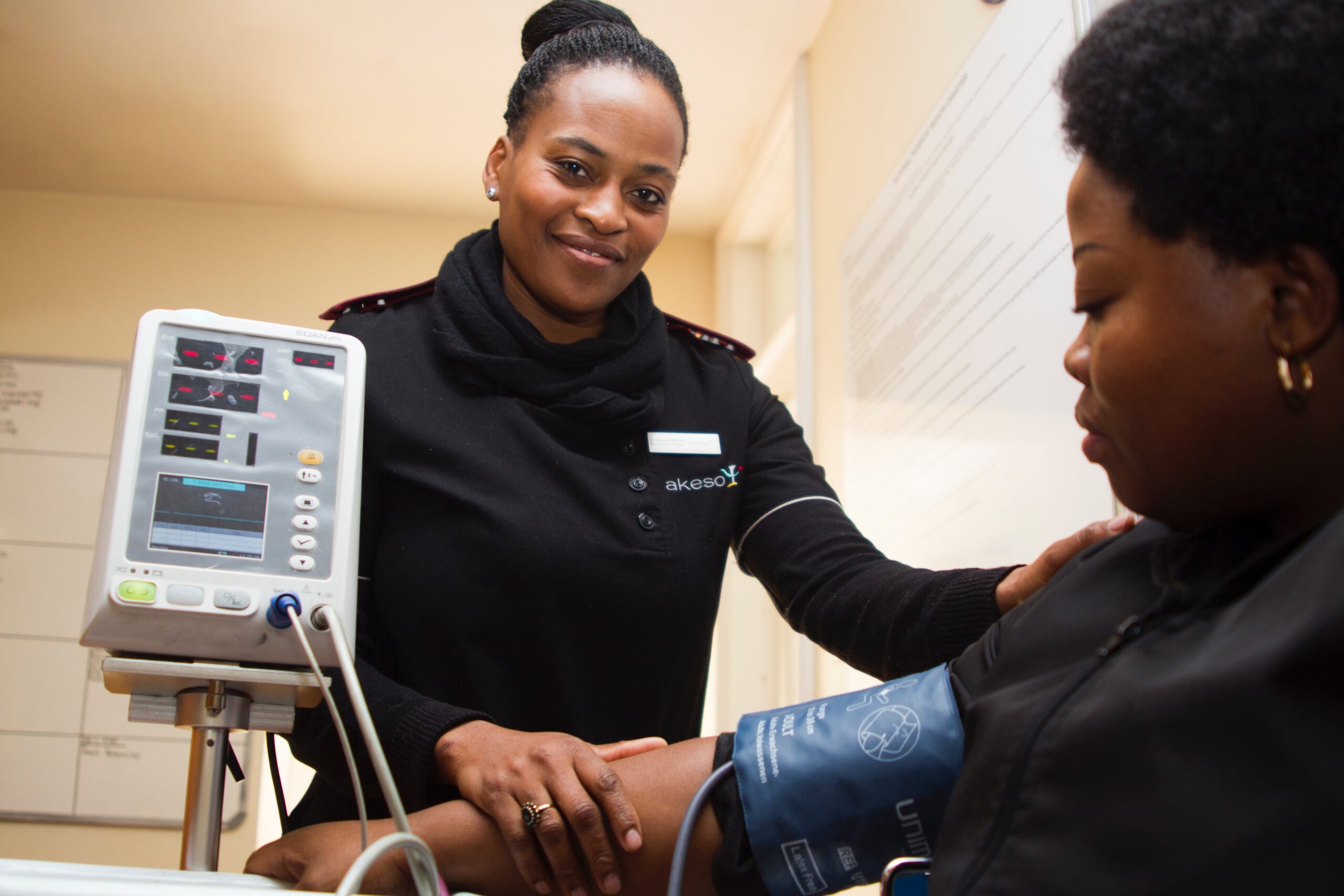By Kristina Kent, Director for Workforce Programs, Greater New Orleans Foundation
Sector partnerships are a workforce best practice to ensure alignment between businesses, education providers, community support organizations, and workers. Building upon the Foundation’s successful work to support training pathways in healthcare and green infrastructure, the Foundation will soon launch two regional sector partnerships in healthcare and, with Thrive New Orleans, in construction & green infrastructure.
New Orleans Works (NOW)
A decade ago, with the support of many of our partners in the public sector and philanthropic community, the Greater New Orleans Foundation launched an initiative to connect unemployed and underemployed workers in our region with good health care jobs that offered a career path for growth in one of the largest and fastest growing industries in our region: New Orleans Works (NOW).
With commitments to hiring those individuals who were trained, our partners at Ochsner Health, LCMC Health, the Veterans Administration, and DePaul Community Health Centers helped us overcome one of the most important barriers our neighbors faced in their career journeys—the promise that there really would be a job at the end of the rainbow. Delgado Community College stepped up and with our support, built a curriculum that met our employers’ needs. And through the work of partners, wraparound supports were provided to ensure trainees and their families had what they needed to be successful. As a result of this collective partnership, NOW helped place over 500 workers into new jobs in a stable, growing industry.
NOW demonstrated that an employer-driven model, where workers are paid and supported while in educational training and through which a job was guaranteed upon completing training, can break down the barriers that can limit full-participation in workforce opportunities for all in our region.

Stock Image
Our Research
While leading New Orleans Works, the Greater New Orleans Foundation has been on a journey to better understand the workforce development ecosystem in our thirteen-parish region and how we can best support it. In the coming months, we are looking forward to releasing a cumulative report of our research on topics from the importance of wraparound supports for both trainees and new employees to the impacts of Covid on our workforce development ecosystem. While this report will serve as the north star for our future work, what is more than evident from our research is that we have no shortage of talent in our region. It’s the reason healthcare, trade, energy and hospitality remain dominant sectors in our economy. The same individuals who have sustained our region will fuel exciting opportunities to expand our economy including by growing our health and biosciences industry in the BioDistrict New Orleans and by constructing the climate resilient infrastructure projects of today that will ensure our region’s sustainability tomorrow.
Our research also uncovered prevalent fragmentation across the workforce ecosystem. While we have numerous, committed education and training providers deeply engaged to prepare a workforce for our region, these providers remain largely disconnected from the businesses and industries that will ultimately employ that workforce. In the same vein, businesses dedicated to our region’s success often work alone, managing their workforce and competitiveness challenges by themselves rather than as an industry collaboration structured to help break down silos and foster strong partnerships between business and training providers.

Stock Photo
Sector Partnerships
In the coming months, we are excited to launch sector partnerships: a well-tested strategy to help address this fragmentation and unite talent with trusted career pathways to high wage, high growth careers. Sector partnerships bring business leaders from the same industry sector and labor market together with education, workforce development, economic development, and community organizations to address their workforce and competitiveness needs. The most successful sector partnerships address talent shortages and build thriving workforce ecosystems by working forward from businesses’ talent needs to ensure training alignment and quality jobs at the end of the training.
Healthcare, Construction & Green Infrastructure
Building upon our success through New Orleans Works to support entry-level, clinical healthcare career pathways and fund training pathways in green infrastructure to “create a culture that supports workforce and small business opportunities,” the Foundation plans to launch two sector partnerships in our region in the coming months—one in healthcare and another, with our long-time partner, Thrive New Orleans, in construction & green infrastructure. We are deeply committed to working not only with our business partners in these industries but also with the many community-based organizations who support workers and their families so that we can create equitable pathways into two of the highest wage, highest growth potential industries in our region. We are equally committed to ensuring everyone who wants to access these pathways has that opportunity.
Promising Practices
Over the last year, the Foundation has studied and met with several successful sector partnerships across the country. Through those meetings, our ongoing research, and our experience leading New Orleans Works, we have identified several promising practices to ensure our sector partnerships are equitable, open to all, and drive not only economic mobility for workers but work-ready talent for businesses, such as:
- Earn-and-Learn Pathways: We will leverage both public and philanthropic dollars to provide paid “earn-and-learn” training pathways. Such an approach provides the opportunity for workers to pay their bills while engaged in on-the-job training that leads to a good job. It also ensures that anyone, regardless of socio-economic background, can access the sector partnership’s training pathways;
- Wraparound Supports: For several years, the Foundation led a pilot resource navigation program, New Orleans Workforce Innovations (NOWI), through which social workers were deployed to help workers navigate challenges external to work that could inhibit their ability to be successful on the job, such as a lack of childcare or transportation. Through this work, we learned how vital wraparound supports are for workers and employers to achieve success by increasing both retention and job satisfaction. We plan to offer such supports throughout the training-to-job continuum and beyond. This support would allow, for example, a young mother who encounters a loss of childcare at any point in her career journey to have a network of support organizations to turn to for assistance, instead of having to choose between care for her child or her job;
- Career Latticing: We will focus not only on moving individuals into the healthcare and construction & green infrastructure sectors but providing opportunities for upskilling (increasing skillsets as a pathway to advancement) or reskilling (learning entirely new and different skills as a pathway to advancement) within those sectors. This “career latticing” approach provides workers with greater opportunity for economic advancement, choice, and job satisfaction that leads to greater recruitment pathways and higher retention for employers. Such career latticing can happen both within a sector—such as a medical assistant receiving paid training to become a licensed practical nurse (upskilling)—and across sectors—when a facilities manager in a healthcare facility chooses to gain HVAC skills to transition into HVAC installation maintenance in the construction sector (reskilling).
Past Efforts and Looking Forward
We recognize and respect the important efforts to make connections across the workforce ecosystem and region that have preceded our work to create sector partnerships. We are grateful for the solid foundation this prior, vital work laid for our work to come. We look forward to engaging with our partners across the community and in the healthcare, construction, and green infrastructure sectors to create trusted, resilient training pathways that support businesses and help the diverse and exceptional talent that exists across our region secure good jobs with family-sustaining wages.